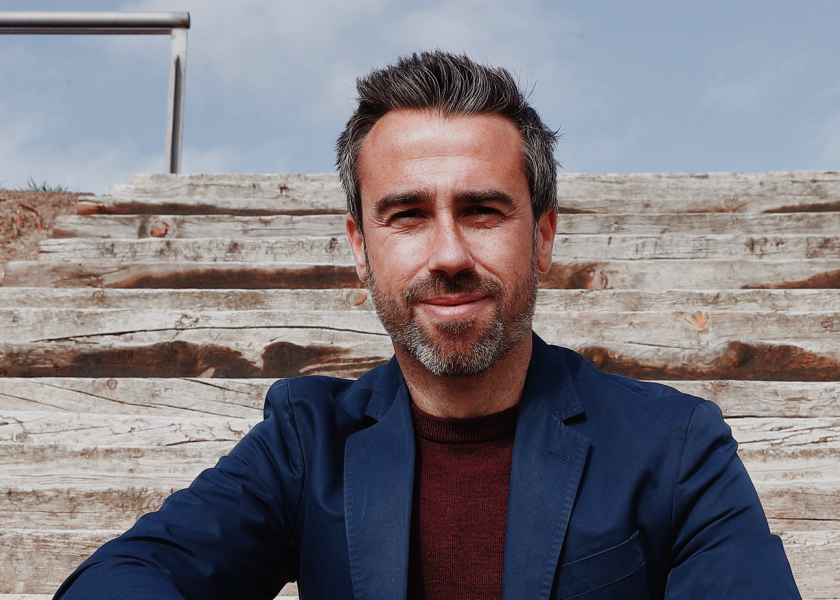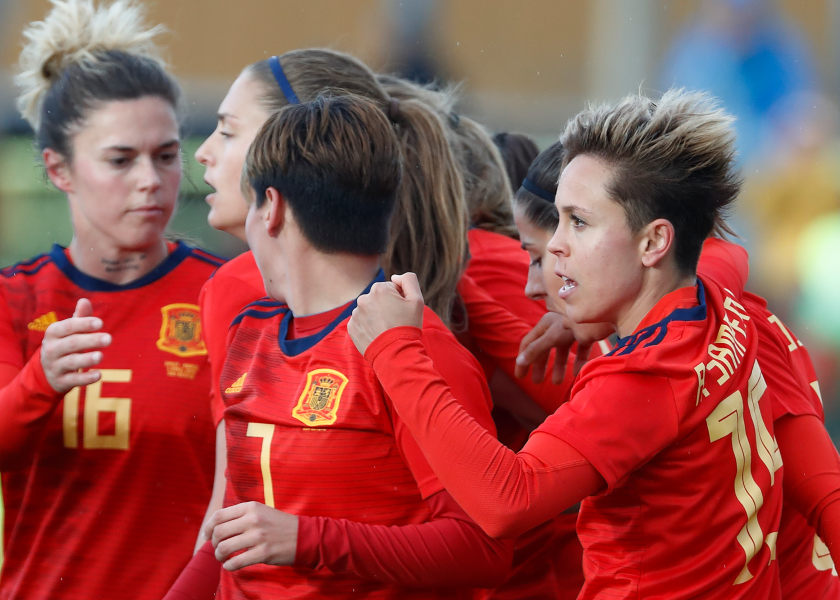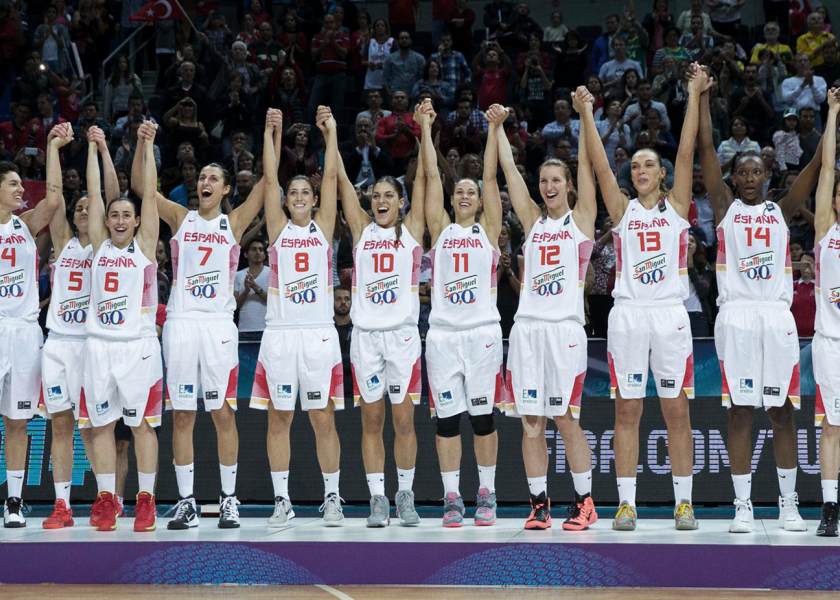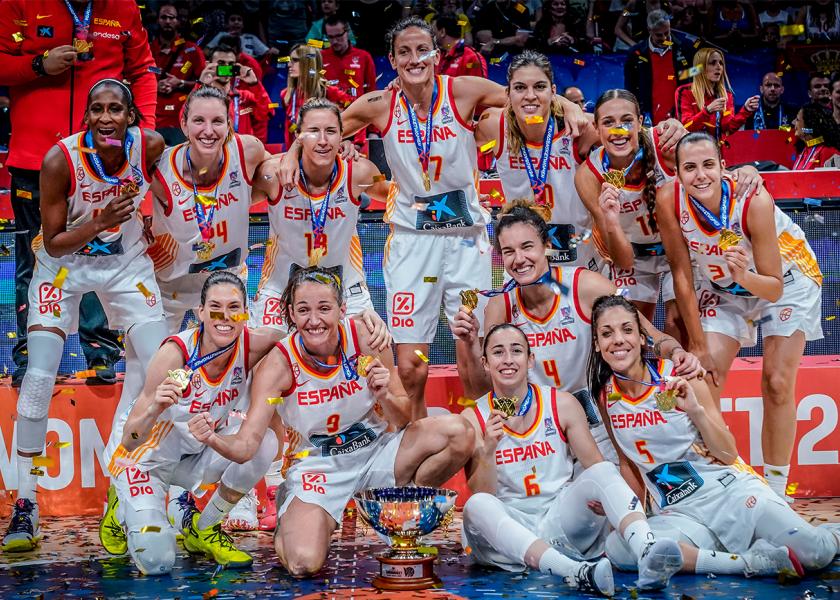Marta Torrejón
The Legacy of the National Team Captain
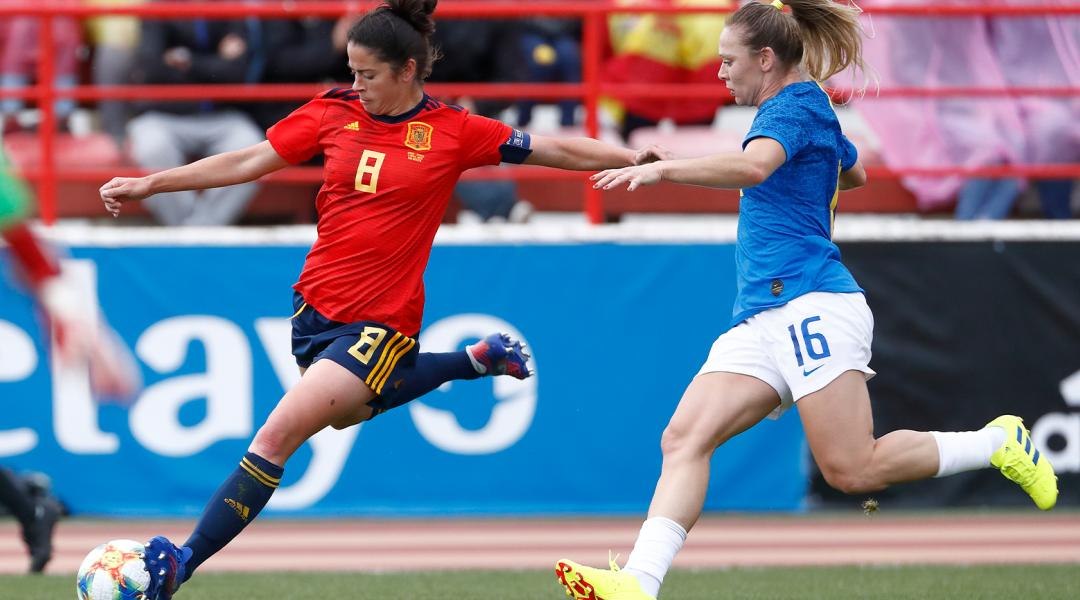
We chat with Marta Torrejón, the most capped player in the Spanish women’s national team, about football, talent and work. She knows what she’s talking about, too, juggling a successful sports career with university degrees in Biology and History and Geography.
Before turning 30, Marta Torrejón (Barcelona, 1990), captain and one of the symbols of the Spanish women’s national football team, is moving away from the vertiginous path our female footballers are treading. The Catalan athlete says goodbye after 12 years, having led the first generation of women representing Spain in a World Cup. But she’s proud to see the progress her sport has made over the years, and convinced that things will only get better for national women’s football.
What do you take home after so many years in which you’ve become the most capped player?
Most of all, the great friends I’ve made from places all over Spain. And, of course, the experience of having competed against the best players and very powerful teams, which, in the end, is what you’re looking for as a high-level athlete.
Isn’t it too early to leave the national team, at 29?
Many people may think so, but if you consider my debut with the national selection was at 17, that’s twelve seasons on the highest level, combined with my club, studies, family, friends. It may be early, but I’ve come a long way. I also think it’s a good time because I’m leaving with the national team and Spanish women’s football in much better shape than when I started.
Has the sport changed a lot since then? Where are the Spanish national team and women’s football heading?
Up, I believe. The future is bright, and there have been big changes in all aspects—media coverage, on the level of competition, work, player monitoring, and so on. It couldn’t have evolved more. There’s still a long way to go, but things will get sorted out, and those who come after will be able to enjoy it.
“I think it’s a good time to retire because I’m leaving with the national team and Spanish women’s football in much better shape than when I started”
Perhaps the World Cup in France last summer has been a turning point. Have you noticed much difference between this championship and previous tournaments you’ve played with the national team?
The truth is that the 2015 World Cup in Canada was already a turning point, even though it didn’t have the same media impact as France. The fact that the Spanish women’s team qualified for a World Cup for the first time gave us a boost, and things have evolved dramatically since then. With the World Cup in France, it took off permanently, in Spain as well as elsewhere—our following keeps growing, and the games are broadcast on television. There is a number of things that make us more and more visible.
Apart from being a footballer, you’re a Biology graduate and you’re currently studying History and Geography, breaking with the stereotype that athletes don’t study. Do you have time for everything?
You have to be a little organised, but yes, I think there is time for everything and that you shouldn’t leave anything aside. If you manage your time well, you can combine everything. Maybe you can’t finish a degree in one go, but if you organise yourself there’s time for everything, and if you don’t, it’s not because you can’t but because you won’t. I took Biology and now, taking things very easy, I’m studying History and Geography, out of curiosity and because I like it.
Do you think you have to have some special talent to be a professional footballer and, as is your case, also graduate from a higher education?
I would define talent as the situation in which you see someone special doing a specific activity and you say “this boy or girl has talent” to do something because it comes naturally, they have it in them and they do it spontaneously. Maybe other people who don’t have that talent can do the same activity but have a harder time because it doesn’t come naturally. However, I think that talent has to go hand in hand with work. Talent is innate, but if you don’t work on it, it can get lost. That’s why there needs to be a balance between talent and work in order to succeed.
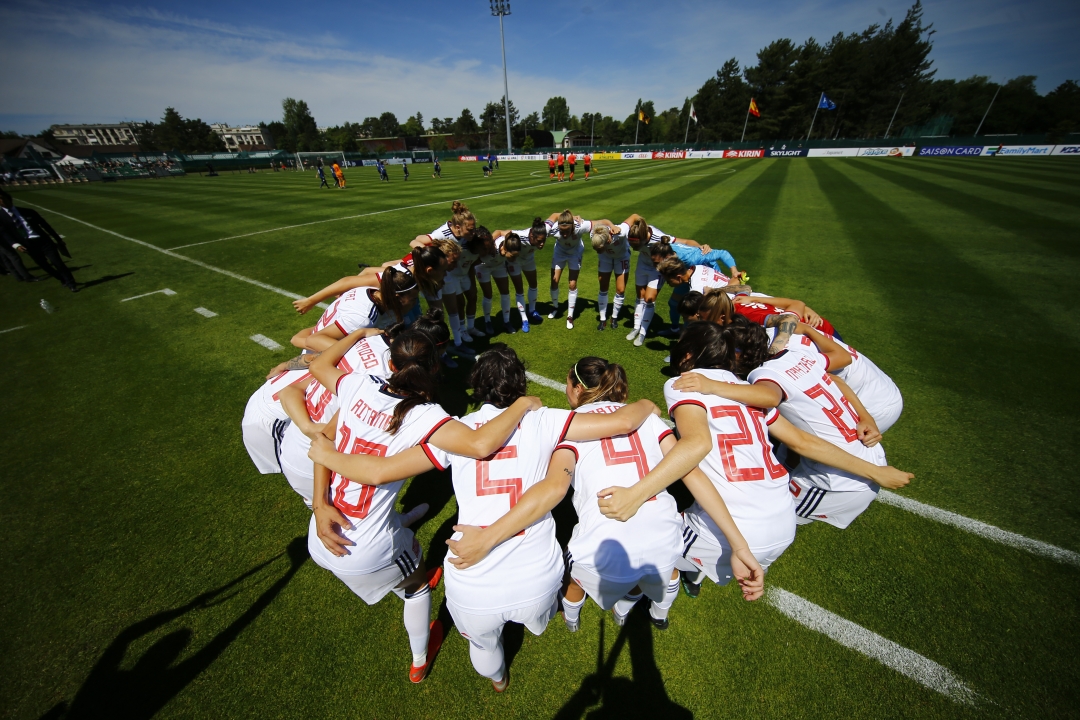
Marta Torrejón has been instrumental in the great advances Spanish women’s football has made in recent years. © RFEF
You are a daughter, sister and niece of football players. The Torrejóns seem to have football in their DNA, right?
We’re actually a family of athletes in general, because my cousin plays basketball, my mother played hockey—but yes, football predominates. It may be genetic, but it needs to be worked on, and to dedicate yourself to sports professionally, certain things must also be sacrificed. Talent is important, but work is essential. I consider myself not a talented but a constant person. There are many other girls who have better skills, but they must be worked on and you have to be disciplined, which is very important in sports.
“Talent, if it’s not worked on, can get lost”
What does the future hold for Marta Torrejón? Do you still have many years of football left, even if it’s no longer in the national team, or will you also retire from club football young?
I don’t know, to be honest. Just as I knew I was going to retire from the national team if we didn’t qualify for the Olympic Games, I’m not planning to stop playing football professionally. I’ll retire one day, but it’s not something I’m thinking about at present. I think I’ll notice that myself at some point. I’m feeling good this year, but the seasons are long, and time will tell when it’s time to leave.
And then? Will you keep wearing boots?
I don’t know if I will continue to be linked to this world in the long run. Women’s football is growing a lot and you never know what opportunities may present themselves. So I would never say that I won’t continue in football. However, I did study Biology because I wouldn’t mind dedicating myself to it, so I’ll go with the opportunities and offers that will arise in the future.
